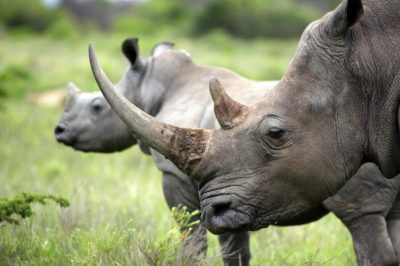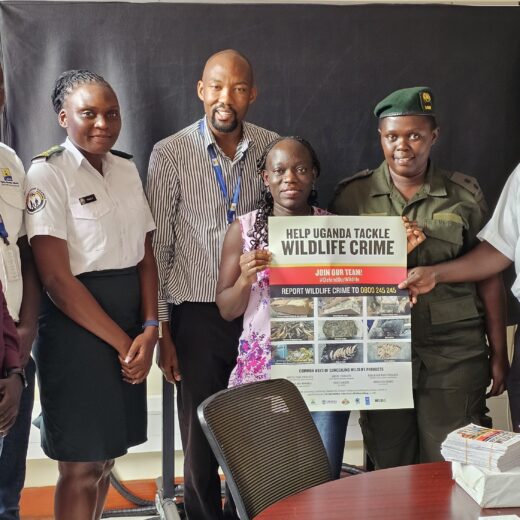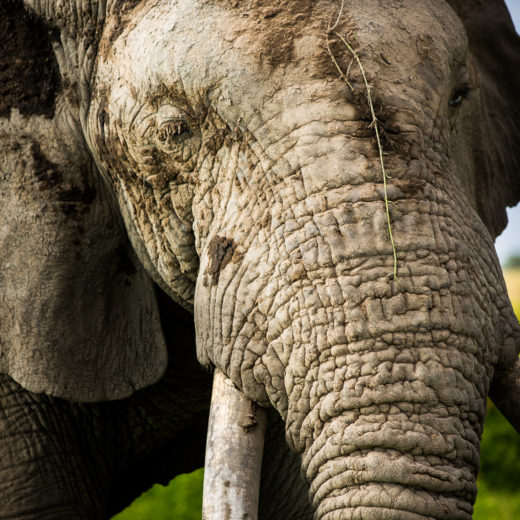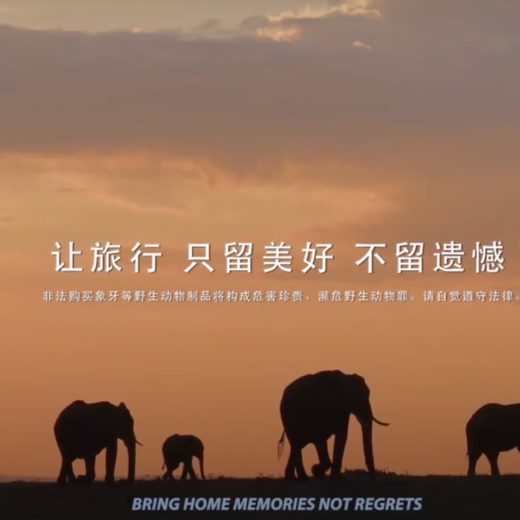
JOHANNESBURG (May 4, 2016) – Prominent South African celebrities have come together to launch a campaign for decisive action to solve the rhino poaching crisis that the nation has grappled with since 2008.
The campaign features well-known South African personalities such as DJ Fresh, Springbok rugby player Tendai “Beast” Mtawarira, comedian Marc Lottering, actress Masasa Mbangeni, DJ Poppy Ntshongwana, Super Rugby players Scarra Ntubeni and Joe Pietersen and model-entrepreneur Maps Maponyane, many of whom visited the bush to see wild rhinos for the first time as part of the campaign.
“There’s a common belief in conservation and government circles that only wealthier, white people are concerned with rhino and the future of wildlife, but our research shows that conservation is strongly supported by people of all races and incomes,” said WildAid CEO Peter Knights. “Conservation is a unifying issue in an often deeply divided country. You don’t need money to care about wildlife; your voice matters, too.”
Masasa Mbangeni: Poaching Steals from Us All, from WildAid on Vimeo
Though banned for over 20 years as traditional medicine in China, rhino horn consumption has recently surged in countries such as Vietnam, where horn powder is marketed as a “cancer cure” to desperate cancer patients who lack access to adequate medical care. It’s also used as a non-traditional “recreational drug,” and hangover cure. Despite these new uses, rhino horn has no unique medical properties and is primarily composed of keratin, the same protein found in human hair and fingernails.
In South Africa, WildAid’s market research shows that affection for rhinos is virtually equal across all races: 80% of black South Africans said they would be “very sad” if rhinos went extinct in the wild, compared 83% for Indian, to 84% for mixed ethnic origin and 81% for whites. Only 5% of black South Africans said they were not interested in visiting national parks to look at animals, versus 9% of whites. Furthermore, 33% of black South Africans said they would like to visit a national park to see wildlife, but had never been able to, against 18% of whites.
While previous rhino campaigns focused on fundraising, WildAid states upfront “we don’t want your money, we want your voice.” The “Poaching Steals from Us All” campaign appeals to all South Africans to support conservation and to unite in encouraging the government to solve the crisis. It emphasizes the cultural and economic importance of wildlife and its primary aim is to create opportunities for South Africans of all races to engage their leaders about wildlife crime.
Joe Pietersen: Poaching Steals from Us All, from WildAid on Vimeo
In TV ads, billboards and social media channels, the new campaign asks South Africans to “raise their voices” using a custom-designed website to send Twitter messages to a range of leaders and promote awareness across Facebook and Instagram.
While a divisive debate has raged in recent years about legalizing the international rhino horn trade, largely driven by wealthy white wildlife ranchers who wish to sell farmed horn, the government recently declined to push the proposal. “Legalization was a distraction from dealing with the real issues — corruption at home and in Mozambique, the lack of high-level prosecutions and the absence of a clear message to Asia to stop, not legitimize, the use of horn,” said Knights. “It would never have been approved by the Convention on International Trade in Endangered Species [CITES]. A similar trade experiment in 2008 with elephant ivory legalization massively increased poaching, leading to about 33,000 elephants a year being poached across Africa.”
Scarra Ntubeni: Poaching Steals from Us All, from WildAid on Vimeo
“Tens of millions of dollars have flowed into South Africa for anti-poaching, but instead of just shooting or jailing low level poachers we need to involve local communities more, bust the big players in wildlife crime and send an unequivocal message to consumers” Knights said.” The world will unite behind South Africa at the September CITES meeting if it has the courage to lead in this direction.”
“People want to go to our national parks, but many simply don’t have the financial means to do so. The government could help to change that,” said Adam Welz, WildAid’s South Africa Representative. “We need to build a genuinely diverse, inclusive and active constituency for wildlife in South Africa and to make public concern more visible.”
Stacey Holland: Poaching Steals from Us All, from WildAid on Vimeo
DJ Fresh: Poaching Steals from Us All, from WildAid on Vimeo
Marc Lottering: Poaching Steals from Us All, from WildAid on Vimeo.
More PSAs to come!
Stay in touch and get the latest WildAid updates.
SIGN UP



